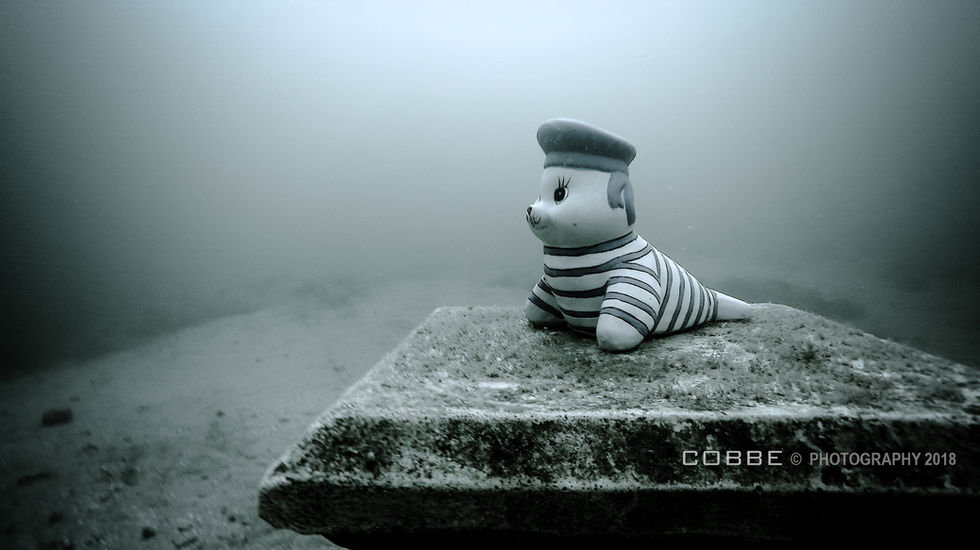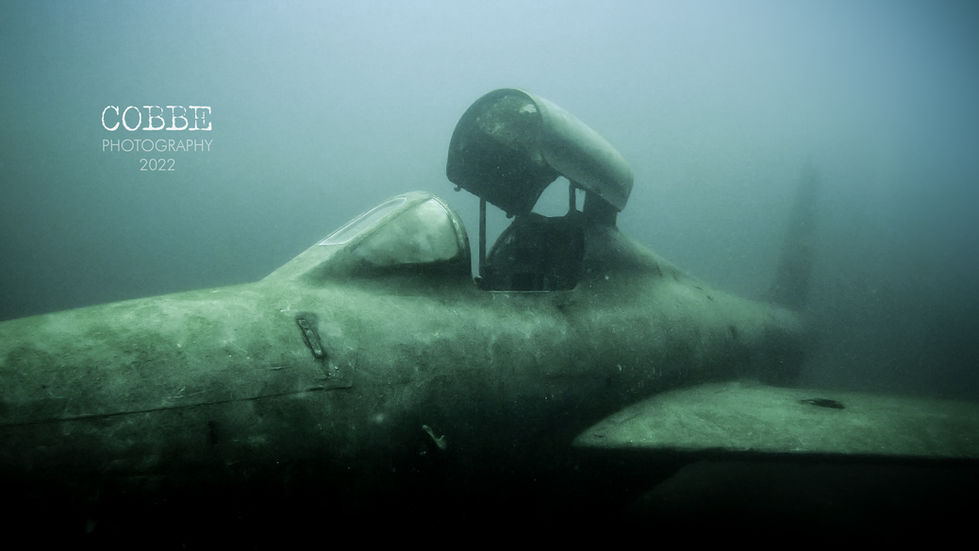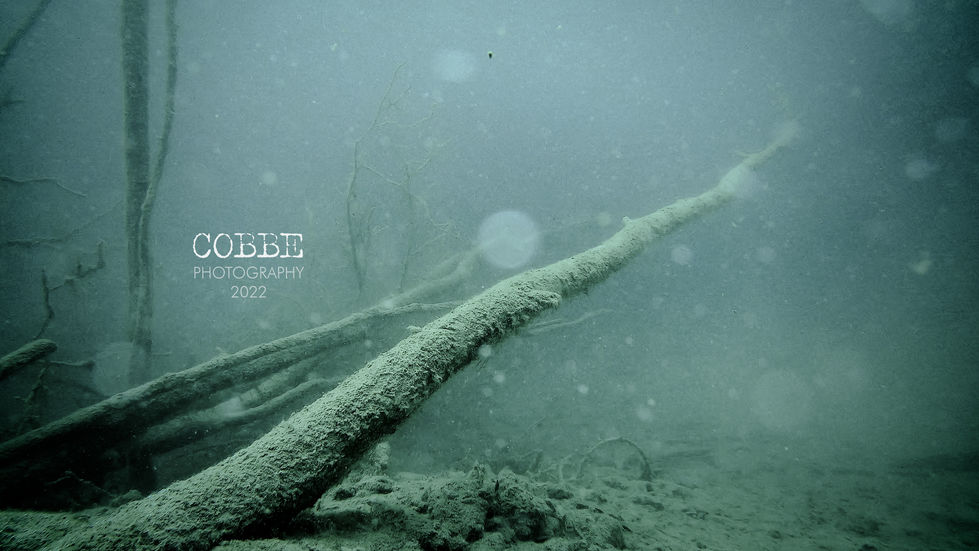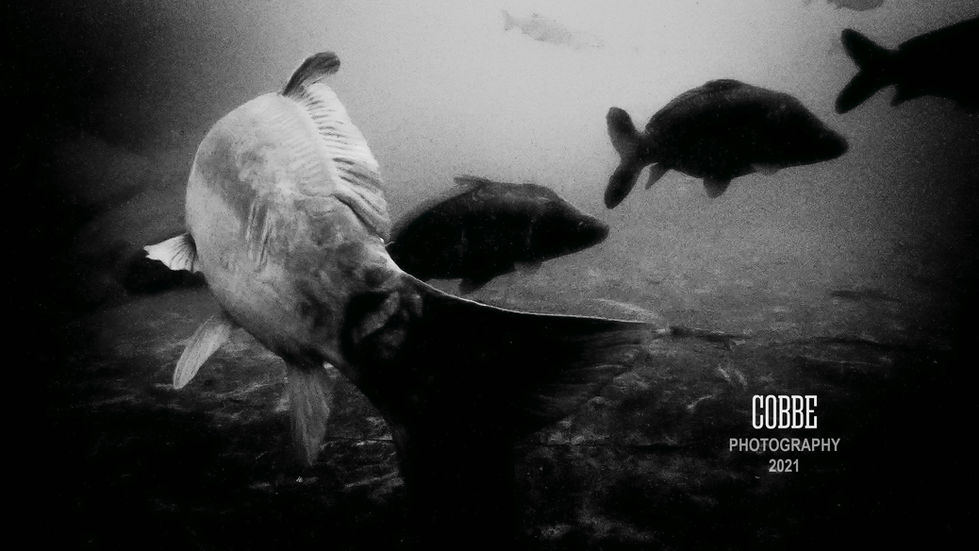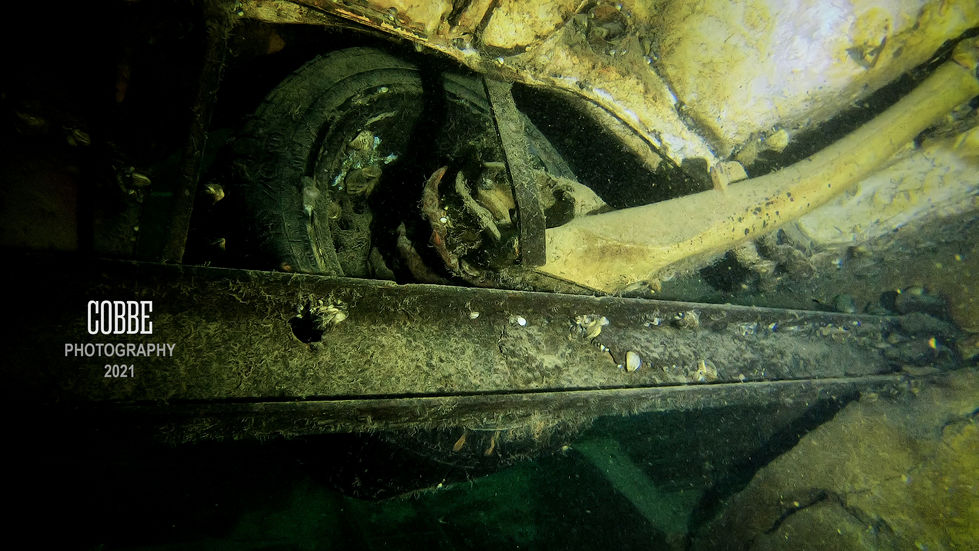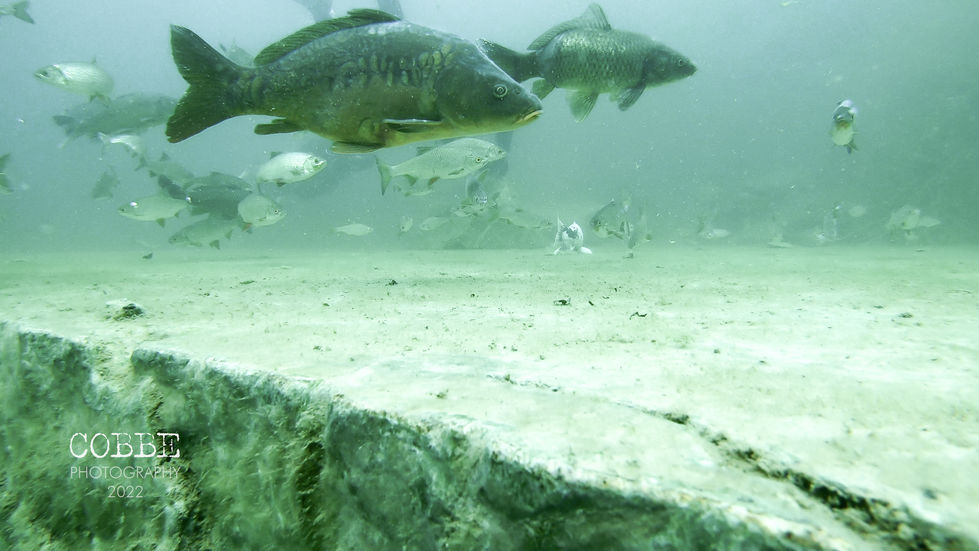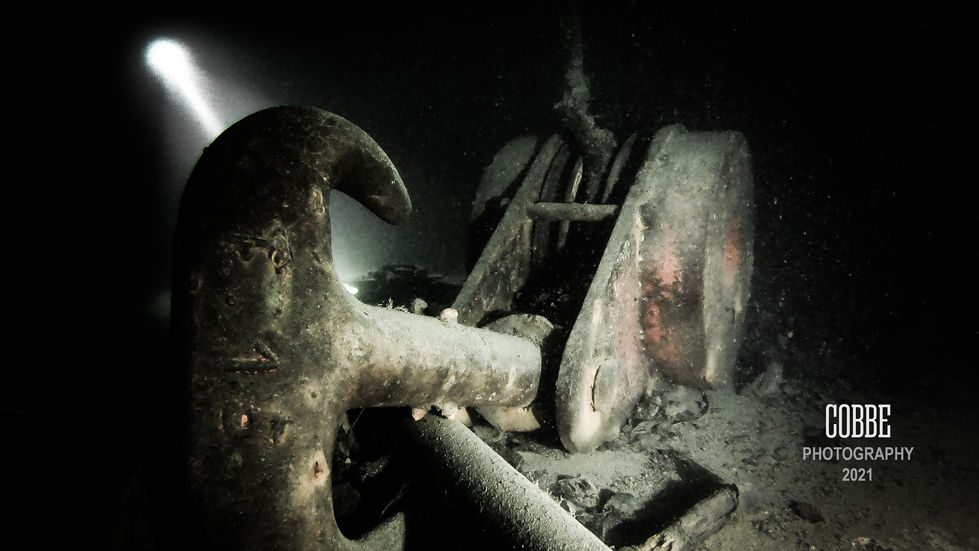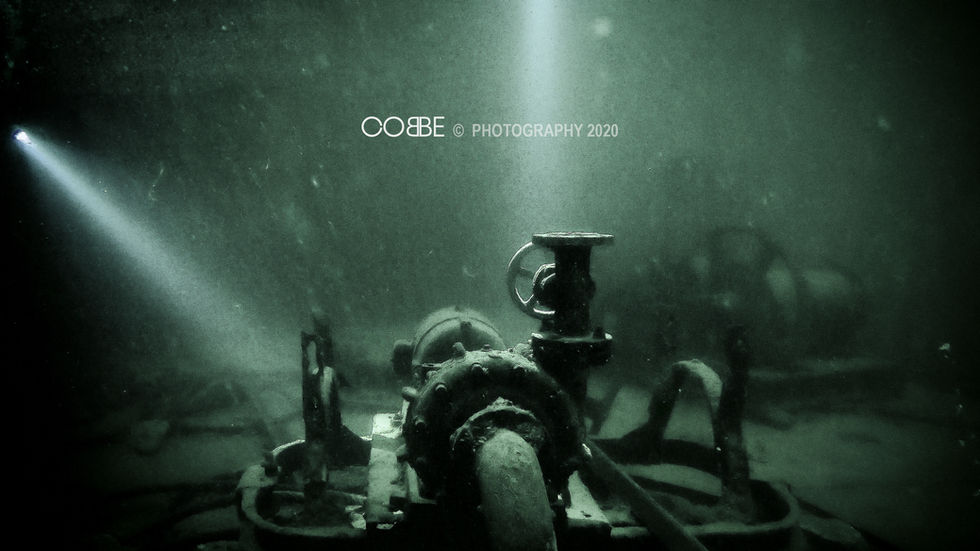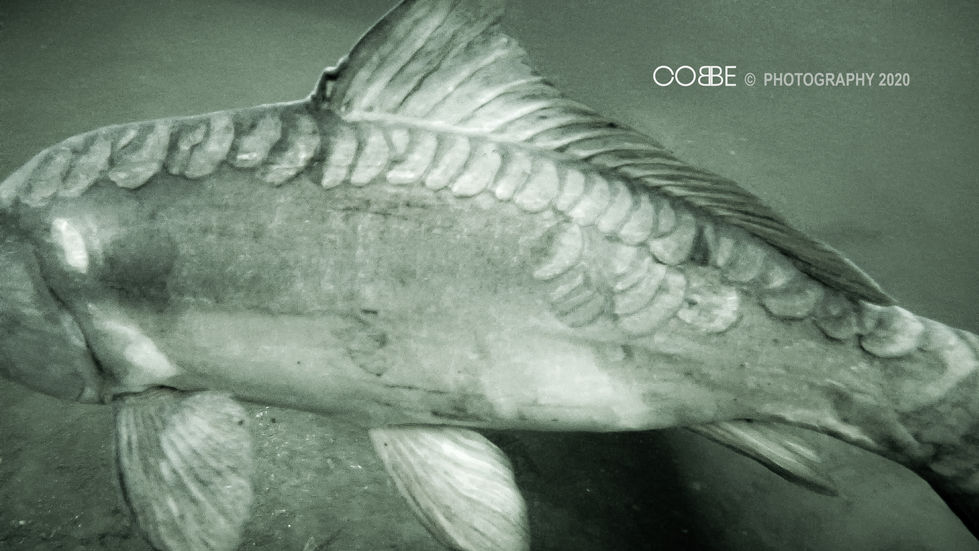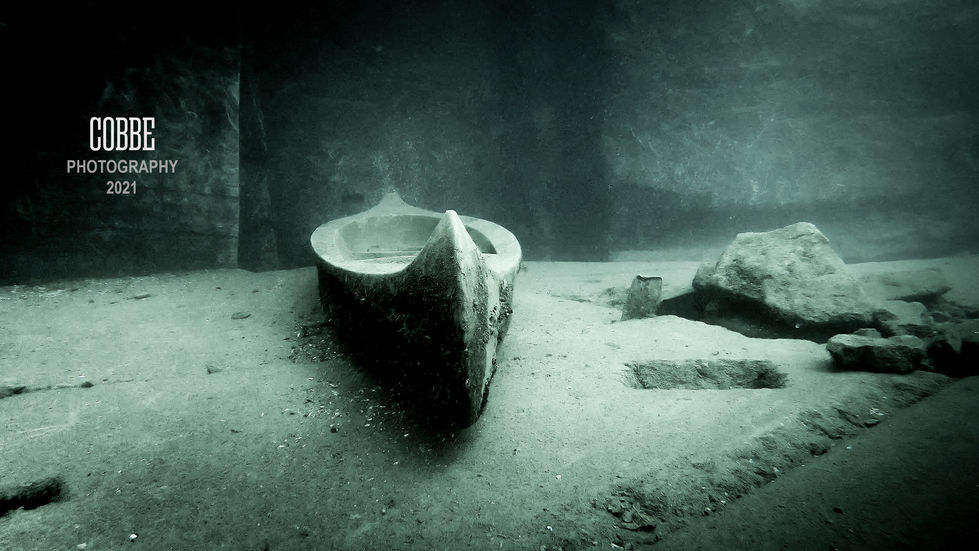
BELGIAN
DIVE SITES
A SELECTION
This website does not intend to provide the most up-to-date information in terms of accessibility, water temperature, visibility or price.
It is also not the intention to provide a complete overview of Belgian dive sites.
Partly because of my training as an architect and diving instructor, I have a slightly different view.
Below you will find some images of favorite dive sites.
These were all taken with a small action camera or smartphone. No expensive cameras are needed to be able to express a first atmosphere.

RAW

DOMEIN MUISBROEK
PUT VAN EKEREN
The "Put van Ekeren", which was dug as a water source for the then steam shunting locomotives of the railways,
now houses a large number of native fish species.
In the shallow part (<5m), along the edges of the lake, it is beautifully overgrown in the summer months (including "waterweed").
You will find pike, perch, roach, carp, eel, freshwater crayfish and mussels.
In the middle we find the former suction pit.
Between 6 and 9 meters you see clay walls that run down like a mini drop-off. The fossil shell layers are clearly recognizable.
The center of the pit consists of mud and measures about 20m deep.
The "Put van Ekeren" is a very suitable place for training dives.
You will find beautiful underwater sculptures, but also less cultural clutter.
NICE TO HAVE

LA GOMBE
La Gombe is a 30m deep former sandstone quarry with imposing rock walls that rise steeply out of the water.
The visibility is usually good.
The entry point is teeming with fish, including tame carp and sturgeon.
We find numerous objects such as large pipes, a diving bell, an armored vehicle, an F84 combat aircraft of the Belgian Air Force,
an ejection seat, a rover passenger car and two sunken boats.
A number of lifeless trees create an unreal atmosphere.
SELFIES

LA ROCHE FONTAINE
The fact that marble is mined in blocks is clearly visible in La Rochefontaine.
Straight walls make the transition between various levels.
The quarry measures over 50m deep and narrows down. Although the water is very clear, it is pitch dark below.
Under water we still find many old mining tools, including a drill head, a pulley and gondola.
Striking is the huge crane that protrudes far above the water. The driver's cabin can be found at a depth of 4 meters.
For further decoration were also sunk: a 10m long tugboat from 1929, a Hawker-Hunter fighter plane from 1957,
a sloop and a polyester sailboat, several car wrecks,...
SELFIES

LA CROISETTE
The ~30m deep red marble quarry “La Croisette” is characterized by perpendicular cut walls.
These show nice veins, cracks, cavities and processing traces.
There are still a lot of tools at the bottom of the quarry: rails and sleepers, pumps, pipes, ladders, buckets, electric winches, shelters,…
There are pike, sturgeon and the infamous giant catfish.
SELFIES

VODELEE
In Vodelee, gray and red marble was mined in the past under the names Royal, Imperial and Griotte.
Since the water is usually very clear, you can enjoy an impressive spatial image of the former quarry.
Steep walls descend to a depth of ~40 meters.
Underwater are all kinds of objects including a tank, a submarine and a wreck.
A lot of fish have been released in the quarry. Most of these fish live in the top 5 meters. The sturgeons can hit you in the deeper part.
(( scroll ))
























